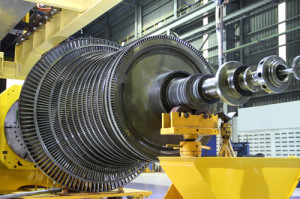 In 2013 the European machine tool production showed small growth and reached to 22.8 billion euro from 22.7 billion euro last year, explained by the recent return to economic growth in Europe and the improved business confidence. However the growth prospects stay modest in Europe and therefore the outlook for considerable gains in machine tool production remain low in 2014. Transforming emerging markets have brought down CECIMO exports by 3% to 18.2 billion euro in 2013. Recent changes in government policies in these emerging countries have cut the growth of investment in capital goods in the short term. In the medium term, the growing mid-class will create an expansion of the machine tool demand because of higher consumption in the form of rising per capita spending on manufactured goods and services. The European machine tool consumption increased 2% in 2013 after contracting in 2012. After four successive quarters of economic growth, companies are finally upgrading their production facilities. Slow but wider-based growth and other economic indicators support the on-going trend and the CECIMO’s estimation of a 2% increase in 2014. Finally, domestic orders increased in the end of 2013, the index gained 6% and 1% in quarter to quarter comparison and on yearly basis respectively. CECIMO’s imports declined 5% to 8.0 billion euro last year. Hence we can conclude that the companies investing in machine tools mostly used their domestic suppliers. This is further confirmed by the machine tool order intake. “Demanding European buyers push local machine tool builders to constantly improve and innovate. Close cooperation with those clients ensures the competitiveness of the European machine tool industry globally. The trend to take labour costs to a large extent out of the calculation when investing in highly efficient production equipment is unbroken. Therefore, the increase in domestic investment activity is very good news for us,” explained Dr Frank Brinken, the Chairman of CECIMO Economic Committee and a member of the Board of Directors, Starrag Holding Group.
In 2013 the European machine tool production showed small growth and reached to 22.8 billion euro from 22.7 billion euro last year, explained by the recent return to economic growth in Europe and the improved business confidence. However the growth prospects stay modest in Europe and therefore the outlook for considerable gains in machine tool production remain low in 2014. Transforming emerging markets have brought down CECIMO exports by 3% to 18.2 billion euro in 2013. Recent changes in government policies in these emerging countries have cut the growth of investment in capital goods in the short term. In the medium term, the growing mid-class will create an expansion of the machine tool demand because of higher consumption in the form of rising per capita spending on manufactured goods and services. The European machine tool consumption increased 2% in 2013 after contracting in 2012. After four successive quarters of economic growth, companies are finally upgrading their production facilities. Slow but wider-based growth and other economic indicators support the on-going trend and the CECIMO’s estimation of a 2% increase in 2014. Finally, domestic orders increased in the end of 2013, the index gained 6% and 1% in quarter to quarter comparison and on yearly basis respectively. CECIMO’s imports declined 5% to 8.0 billion euro last year. Hence we can conclude that the companies investing in machine tools mostly used their domestic suppliers. This is further confirmed by the machine tool order intake. “Demanding European buyers push local machine tool builders to constantly improve and innovate. Close cooperation with those clients ensures the competitiveness of the European machine tool industry globally. The trend to take labour costs to a large extent out of the calculation when investing in highly efficient production equipment is unbroken. Therefore, the increase in domestic investment activity is very good news for us,” explained Dr Frank Brinken, the Chairman of CECIMO Economic Committee and a member of the Board of Directors, Starrag Holding Group.

Policy priorities of the sector
The European machine tool sector is highly competitive, exporting over 80% of its production. As the key enabling sector shaping the future for advanced manufacturing, the machine tool industry has proven its adaptability and intelligence to tackle a changing environment. The importance of industry is widely acknowledged by policy makers. The European Commission has called for a “European Industrial Renaissance”, urging Europe to recognise the central importance of industry for creating jobs and sustainable growth. On the other hand, the decreasing rate of production lines upgrades threatens seriously the competitiveness of European manufacturing. It proves that more effective policies are needed on both European and member state levels. Jarmo Hyvönen Chairman of CECIMO Communication & Advocacy Committee and Managing Director of Machine Tool Center Oy adds: “The 2009 economic crisis strongly influenced the financial sector. The recapitalisation of banks and the contracting economy in regions very affected by the crisis have limited the access to finance for the European machine tool industry and its clients.” Therefore, CECIMO calls for coordinated action by the main players on the market, policy makers, the manufacturing sector and financial institutions, to improve the uptake of novel production systems and ensure the competitive position of European manufacturing. Export markets are and will remain an important source of growth for the European machine tool industry. Broader market allows machine tool builders to achieve economies of scale and use their know-how more effectively. However, the economic crisis and political willingness to support local industry have globally created more a protectionist environment. For example, the Occupational Safety and Health Act of South Korea puts European exporters of various types of machine tools under the requirement of safety certification. There is very limited information available in other languages than Korean and, despite of analyses of several practical cases, it is still unclear what are the exact rules established by the act. Hence, CECIMO urges the European Commission to continue to support free trade based on transparent rules and to address the distortionary actions decisively. “Non-tariff barriers like certification requirements hinder trading. Taking into account that the European machine tool industry is dominated by SMEs, who lack access to deep legal expertise abroad, transparent rules are essential,” concludes Filip Geerts, the Director General of CECIMO.



